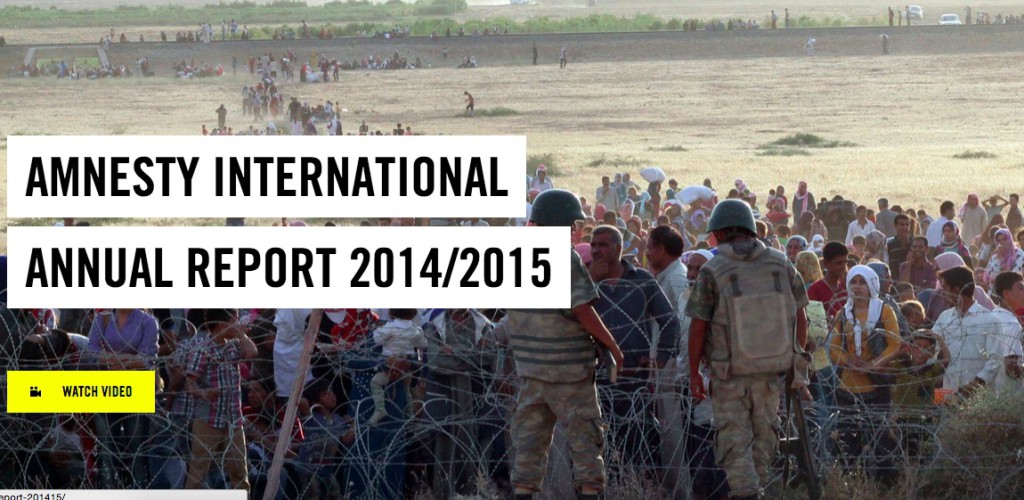… HUMAN RIGHTS …
an article by Salil Shetty, Secretary General at Amnesty International (abridged)
Video: Amnesty: A devastating year for human rights
[As we have shown in our Annual Report,] this has been a devastating year for those seeking to stand up for human rights and for those caught up in the suffering of war zones.
Governments pay lip service to the importance of protecting civilians. And yet the world’s politicians have miserably failed to protect those in greatest need. Amnesty International believes that this can and must finally change.
International humanitarian law – the law that governs the conduct of armed conflict – could not be clearer. Attacks must never be directed against civilians. The principle of distinguishing between civilians and combatants is a fundamental safeguard for people caught up in the horrors of war.
And yet, time and again, civilians bore the brunt in conflict. In the year marking the 20th anniversary of the Rwandan genocide, politicians repeatedly trampled on the rules protecting civilians – or looked away from the deadly violations of these rules committed by others. . . .
2014 marked 30 years since the adoption of the UN Convention against Torture – another Convention for which Amnesty International campaigned for many years, and one reason why the organization was awarded the Nobel Peace Prize in 1977.
This anniversary was in one respect a moment to celebrate – but also a moment to note that torture remains rife around the world, a reason why Amnesty International launched its global Stop Torture campaign this year.
This anti-torture message gained special resonance following the publication of a US Senate report in December, which demonstrated a readiness to condone torture in the years after the 11 September 2001 attacks on the USA. It was striking that some of those responsible for the criminal acts of torture seemed still to believe that they had nothing to be ashamed of.
From Washington to Damascus, from Abuja to Colombo, government leaders have justified horrific human rights violations by talking of the need to keep the country “safe”. In reality, the opposite is the case. Such violations are one important reason why we live in such a dangerous world today. There can be no security without human rights.
We have repeatedly seen that, even at times that seem bleak for human rights – and perhaps especially at such times – it is possible to create remarkable change.
We must hope that, looking backward to 2014 in the years to come, what we lived through in 2014 will be seen as a nadir – an ultimate low point – from which we rose up and created a better future.
(Click here for a Spanish version of this article or here for a French version.)
What is the state of human rights in the world today?,
Latest reader comment:
Each year we get overviews of the state of human rights in the world from Amnesty International and Human Rights Watch.
